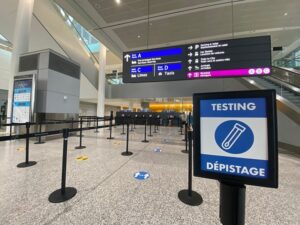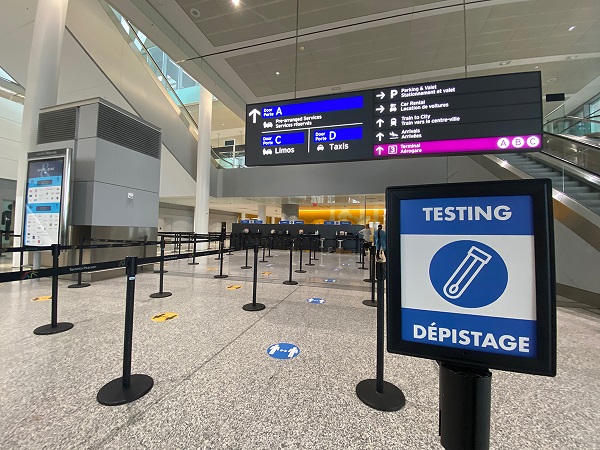From October 1st goodbye to Covid-19 restrictions at the borders

TORONTO – The federal government has lifted all restrictions for Covid-19 at the borders, meaning that travelers will no longer have to provide proof of vaccination when entering Canada and will not be required to wear masks on planes and trains.
From 1 October, all travellers, regardless of nationality, will no longer have to:
¬ Submit public health information via the ArriveCAN app or website;
¬ Provide proof of vaccination;
¬ Undergo tests before or on arrival;
¬ Carry out quarantine or isolation related to Covid-19;
¬ Monitor and report if they develop signs or symptoms of Covid-19 upon arrival in Canada;
¬ Undergo health checks for air and train travel;
¬ Or wear masks on planes and trains.
Health Minister Jean-Yves Duclos said the decision does not indicate that Canada is out of the pandemic, but that government data showed that importing new variants no longer has any effect on the evolution of the virus in the country.
“If anyone believes that the pandemic is over, I invite them to visit a hospital – he said – the decision was guided once again by the evidence of recent weeks and months according to which the transmission and cost of Covid-19 infections on our health workers, hospitals and patients who have had to wait for surgeries and treatment in the last two and a half years … they are now almost entirely driven by domestic transmission of the virus.”
The measures also apply to cruise ships, so passengers will no longer have to undergo pre-boarding tests, get vaccinated or use ArriveCAN.
The government said the guidelines will remain in place to protect passengers and crew.
Last week a group of lawmakers and mayors from border towns published an open letter to Prime Minister Justin Trudeau and U.S. President Joe Biden calling on them to end “unnecessary” restrictions on the border, a move they say would allow border communities to recover economically from the pandemic. And Duclos did not deny that these concerns also weighed on the government’s decision to revoke the measures. “When we make these decisions, we are aware of the challenges and costs border communities have faced in recent weeks and months. It was difficult for them,” he said.
But the health minister did not rule out reinstating restrictions, if necessary, to protect Canadians.
Although masks will soon no longer be mandatory, Dr Howard Njoo, Canada’s deputy director general of health, said he still recommends people wear them on planes and trains. “The science is clear: wearing a mask is an extremely effective means of personal protection – he said – I hope canadians keep this in mind”.
Meanwhile, the Minister of Public Security Marco Mendicino said that the ArriveCan app can still be used by travelers to submit customs declarations in advance at major airports. This option is available at Toronto, Montreal and Vancouver international airports, but is planned to expand to Calgary, Edmonton, Winnipeg, Ottawa, Quebec City, Halifax and Toronto’s Billy Bishop Airports.



